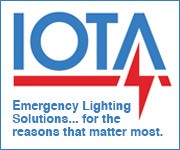After eighteen years of watching over their progeny with their safety being utmost in their minds, all of a sudden someone else is in charge of making sure they are in a safe environment.
Two of the schools in Massachusetts that are listed on the 2019 Princeton Review of 34 colleges that have a Fire Safety Rating of 99, the highest score possible, are Tufts University in Medford/Somerville and Bentley University in Waltham.
Tufts University
John F. Walsh has been the Fire Marshal at Tufts for seven years. Prior to that he had a career of municipal fire services for 22 years, including seven years as Chief of Department. He stated that their Fire Safety Office is staffed by a six person team and is a component of the Tufts University Department of Public and Environmental Safety.
He said he believes that the most important aspect of fire safety in a university setting is continual vigilance of fire protection systems (sprinklers, fire alarm systems, etc.) supported by frequent inspections of all buildings with particular focus on student residence buildings.
Walsh explained that all student residence halls and houses have fire drills two times per academic year. They also perform drills if requested in non-residential academic buildings if special requirements so demand. When accidental alarm activations occur, while they are not counted as drills, they do serve to reinforce the need for prompt and orderly evacuation.
The Tufts University Fire Safety Office utilizes the “3 E’s” approach to fire safety: Education (to their stakeholders), Engineering (of fire protection systems within buildings), and Enforcement (of Code and University policy) through their fire/life safety inspection programs. Fire extinguishers are distributed strategically and in compliance with applicable codes in locations in buildings throughout the campus.
Bentley University
Brian Ingram is the Manager of Fire & Life Safety Operations at Bentley University. He has served five years there and been in the Fire Service for 27 years. He said that he reports to the Director of Facilities. The main objective of his daily activities is to ensure the safety of the students, personnel and campus visitors.
Fire prevention on campus is done by interpreting the local fire prevention codes and applying fire protection engineering principles. He is also involved with the periodic testing of all the fire and life safety systems, including detection, notification and suppression systems.
Ingram described the method of fire drills as semi-annual in the residence halls (September and January) and annual in the administrative and academic buildings in July. He maintained that the purpose of conducting fire drills is to prepare the building occupants for an organized evacuation in the event of a fire or other emergency. Proper evacuation procedures ensure an orderly exit of the building and prevent any panic, he continued. While speed in evacuating the building is desirable, it is not the main objective.
One of the programs he implemented is “Three Minutes to Excellence.” This is where the building occupants have up to three minutes to completely evacuate the building and report to their designated Emergency Rally Point.
They have fire extinguishers located in all the residence halls, administration buildings and academic buildings. These fire extinguishers are inspected monthly by their in-house Fire Alarm Technician. They too are inspected and tagged by a contractor annually. Ingram also noted that they have 5 FM-200 Fire Suppression Systems on Campus. These systems provide fire protection in the University’s telecommunication, data, and server rooms.
The FM-200 systems are a clean, colorless, and environmentally friendly fire suppression agent that is electrically non-conductive and safe for humans. It extinguishes flames primarily through heat absorption, leaving no residue, thus minimizing downtime after a fire.
Rules and Regulations
Both of these private universities have very similar rules about restrictions in dormitory rooms. Most of these are not only university rules but also public law rules. These include but are not limited to candles, incense, lighter fluid, charcoal briquettes, gasoline, propane, paints or thinners, halogen lamps, and neon signs. There is a ban on hanging anything from the sprinkler heads, smoke detectors, ceiling, or light fixtures.
Walsh also mentioned that he is especially concerned about the prohibited practice involving the covering (“bagging”) of a dorm room smoke detector. This typically results from a student seeking to smoke, cook, or use incense within their dorm room while seeking to avoid activation of the in-room smoke detector. In this example, the occupant has introduced a potential source of fire ignition to that room while simultaneously cutting off the smoke detection function of the protective system.
If the student fell asleep or left the room when the fire began, the smoke (which normally is detected quickly) would not activate the smoke detector. Instead the fire would grow unchecked until it had advanced enough to heat the room to 135 degrees causing the fire sprinkler to activate. This scenario would result in a “working fire” within an occupied dormitory endangering all the occupants of the entire building, not to mention the public safety responders who would need to enter the building in response to the incident.
Final Words
Walsh had this to say about his department: “The professional staff of the Tufts University Fire Safety Office works continually and methodically to achieve and maintain high levels of fire and life safety across all Tufts campuses. Students, parents, faculty and staff have an expectation of a fire-safe environment; and we at the Department of Public and Environmental Safety are justifiably proud to meet those expectations continually.”
Ingram as well is proud of his department, saying, “The Bentley University Department of Life Safety Services prides itself on providing the highest levels of Fire Safety, Prevention, and Education to the Bentley community in support of its academic mission. Through dedication, compassion and integrity we will uphold and administer University policies and procedures while providing a safe environment in which our community can excel.”
Any parents can sleep soundly and rest assured that their children would be safe from fire at these two universities.










